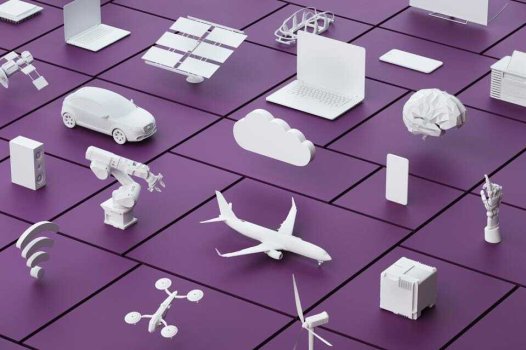K
Kathleen Martin
Guest
The convergence of artificial intelligence, blockchain, cloud computing, edge computing, Internet of Things (IoT), 5G, computer vision and augmented/virtual reality is taking society on a journey through the next wave of the digital revolution and toward the metaverse.
As one of the key enablers of the metaverse, IoT has reshaped our lives in significant ways with a myriad of applications, including smart homes, smart manufacturing, smart healthcare and intelligent transportation systems. Billions of connected devices have generated massive amounts of data that tech giants analyzed to extract valuable insight for their businesses.
However, the IoT industry presently possesses several limitations that restrict the sustainable growth of IoT ecosystems. Can blockchain and cryptocurrency help tackle industry-wide challenges and take IoT to the next level?
Internet of Things: The Status Quo
Today, a typical IoT application is still primarily centralized. An IoT company distributes smart devices to its customers and builds the entire solution that often includes various components.
These include identity management, device management, connectivity gateway, data storage, digital twin, data visualization and others, all on a preferred cloud platform. Centralized IoT system architecture was developed to deliver incredible value to customers, but it comes with five key disadvantages:
• Single point of failure: An IoT solution deployed as a centralized solution is subject to a single point of failure. Although cloud service providers have made efforts to improve the scalability, reliability and availability of their platforms, cloud platforms still experience service outages from time to time, leaving customers with smart devices in the lurch.
• Ownership of devices and data: Users who purchase IoT devices do not truly own their devices or data that’s collected. The lifecycle of smart devices is often fully managed by IoT companies, and it is quite difficult, if not impossible, for users to repurpose their devices for other applications. Moreover, IoT companies have extensively used data collected by smart devices, creating new value in businesses without compensating their customers.
Continue reading: https://www.forbes.com/sites/forbesbusinesscouncil/2022/04/05/how-can-blockchain-and-digital-payments-reinvent-the-internet-of-things/?sh=43ef9e213565
As one of the key enablers of the metaverse, IoT has reshaped our lives in significant ways with a myriad of applications, including smart homes, smart manufacturing, smart healthcare and intelligent transportation systems. Billions of connected devices have generated massive amounts of data that tech giants analyzed to extract valuable insight for their businesses.
However, the IoT industry presently possesses several limitations that restrict the sustainable growth of IoT ecosystems. Can blockchain and cryptocurrency help tackle industry-wide challenges and take IoT to the next level?
Internet of Things: The Status Quo
Today, a typical IoT application is still primarily centralized. An IoT company distributes smart devices to its customers and builds the entire solution that often includes various components.
These include identity management, device management, connectivity gateway, data storage, digital twin, data visualization and others, all on a preferred cloud platform. Centralized IoT system architecture was developed to deliver incredible value to customers, but it comes with five key disadvantages:
• Single point of failure: An IoT solution deployed as a centralized solution is subject to a single point of failure. Although cloud service providers have made efforts to improve the scalability, reliability and availability of their platforms, cloud platforms still experience service outages from time to time, leaving customers with smart devices in the lurch.
• Ownership of devices and data: Users who purchase IoT devices do not truly own their devices or data that’s collected. The lifecycle of smart devices is often fully managed by IoT companies, and it is quite difficult, if not impossible, for users to repurpose their devices for other applications. Moreover, IoT companies have extensively used data collected by smart devices, creating new value in businesses without compensating their customers.
Continue reading: https://www.forbes.com/sites/forbesbusinesscouncil/2022/04/05/how-can-blockchain-and-digital-payments-reinvent-the-internet-of-things/?sh=43ef9e213565

